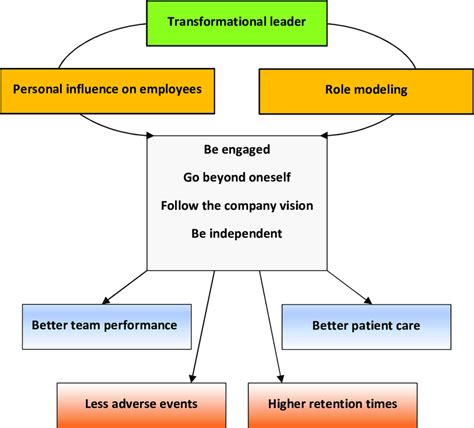The National Health Service (NHS) stands as a beacon of healthcare excellence, providing compassionate and comprehensive care to millions across the United Kingdom. At the helm of this vast organization are exceptional leaders who embody a transformative vision, driving innovation, efficiency, and patient-centered outcomes. Their leadership prowess serves as an inspiration to all seeking to elevate their own leadership capabilities within the NHS and beyond.

Pioneering Patient-Centricity: Dr. Stephen Powis
As NHS England’s National Medical Director, Dr. Stephen Powis has dedicated his leadership to placing patients at the heart of healthcare delivery. He spearheads initiatives prioritizing personalized care, reducing waiting times, and empowering patients to actively participate in their own health decisions. Under his guidance, the NHS has embraced a holistic approach, recognizing the interconnectedness of physical, mental, and social well-being.
Key Accomplishments:
- Launched the NHS Long Term Plan, outlining a comprehensive strategy for improving patient outcomes and addressing health inequalities.
- Established the NHS Patient Safety Learning System, fostering a culture of openness and continuous improvement in patient safety.
- Championed the “Right Care” initiative, promoting evidence-based treatments and reducing unnecessary interventions.
Transforming Digital Healthcare: Matthew Swindells
As the Chief Executive of NHS Digital, Matthew Swindells has been a driving force in the digital transformation of the NHS. He recognizes the potential of technology to enhance patient care, streamline processes, and improve accessibility. Under his leadership, the NHS has implemented cutting-edge technologies such as electronic health records, telehealth platforms, and data analytics to deliver more efficient and personalized healthcare.
Key Accomplishments:
- Led the implementation of the NHS App, providing patients with secure access to their health records, appointment bookings, and health advice.
- Pioneered the use of artificial intelligence (AI) in healthcare, supporting clinical decision-making and improving diagnostic accuracy.
- Collaborated with industry partners to develop innovative digital health solutions, fostering a thriving ecosystem for healthcare innovation.
Inspiring Compassionate Care: Ruth May
Ruth May, Chief Nursing Officer for England, epitomizes the compassionate and caring ethos of the NHS. She advocates for a workforce that provides holistic, empathetic care, recognizing the unique needs of each patient. Under her leadership, the NHS has prioritized staff well-being, fostering a supportive work environment that enables nurses and other healthcare professionals to deliver exceptional care.
Key Accomplishments:
- Implemented the Compassion in Practice program, emphasizing the importance of compassion in daily interactions between healthcare professionals and patients.
- Established the Nursing and Midwifery Council (NMC), regulating the nursing and midwifery professions and ensuring high standards of care.
- Championed the “Health for Care” initiative, promoting the physical and mental well-being of healthcare staff.
Balancing Innovation with Fiscal Sustainability: Simon Stevens
As the former Chief Executive of NHS England, Simon Stevens played a pivotal role in navigating the complex challenges of modern healthcare delivery. He balanced the pursuit of innovation and efficiency with the need for fiscal sustainability, ensuring the long-term viability of the NHS. Under his leadership, the NHS implemented value-based healthcare principles, focusing on delivering high-quality care at an affordable cost.
Key Accomplishments:
- Led the development of the NHS Five Year Forward View, outlining a long-term vision for improving patient care and reducing health inequalities.
- Implemented the “NHS Funding Formula,” redistributing resources more fairly across the NHS, addressing historical funding disparities.
- Fostered a culture of innovation through partnerships with academia and industry, promoting the development of new treatments and technologies.
Additional Leadership Examples for the NHS:
- Professor Chris Ham (Chief Executive, The King’s Fund): Focus on evidence-based healthcare, improving value for money, and tackling health inequalities.
- Dr. Adrian Boyle (Chief Executive, Health Research UK): Promoting research and innovation, translating scientific discoveries into tangible benefits for patients.
- Jacqueline Totterdell (Chief Executive, NHS Confederation): Advocating for the interests of NHS organizations, ensuring that the voices of providers are heard at the policy level.
- Deborah Lee (Chief Executive, Marie Curie): Delivering compassionate end-of-life care, supporting patients and families facing terminal illness.
Leadership Challenges in the NHS:
While the NHS boasts exceptional leaders, it also faces significant challenges that test their leadership capabilities:
- Increasing demand for healthcare services with finite resources
- Tackling health inequalities and addressing social determinants of health
- Managing the adoption and implementation of new technologies
- Attracting and retaining a skilled healthcare workforce
- Balancing the need for innovation with fiscal sustainability
Qualities of Effective NHS Leaders:
To navigate these challenges successfully, NHS leaders must possess a unique blend of qualities:
- Strong clinical or healthcare management expertise
- Exceptional strategic vision and foresight
- Ability to inspire, motivate, and empower teams
- Commitment to patient-centricity and equity
- Understanding of the NHS structure and funding mechanisms
- Resilience, adaptability, and a willingness to embrace change
Conclusion:
The leadership examples within the NHS offer invaluable insights into the qualities and practices that define exceptional healthcare leadership. By emulating these leaders, healthcare professionals can inspire transformative change, improve patient outcomes, and contribute to the sustainability of the NHS. The NHS serves as a testament to the power of effective leadership in shaping a healthcare system that delivers compassionate, equitable, and efficient care for all.
